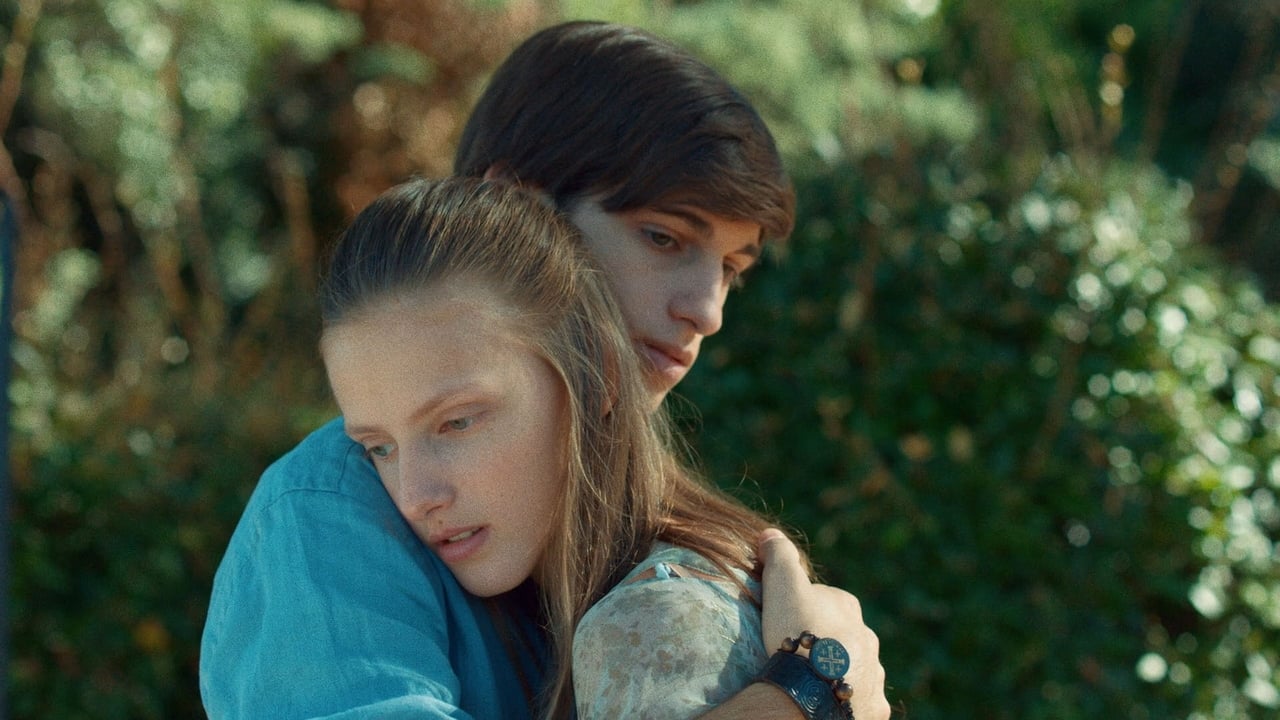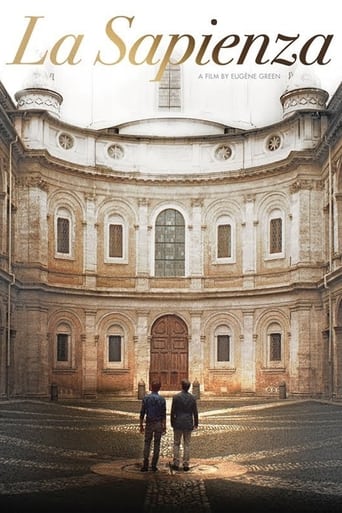Organnall
Too much about the plot just didn't add up, the writing was bad, some of the scenes were cringey and awkward,
StyleSk8r
At first rather annoying in its heavy emphasis on reenactments, this movie ultimately proves fascinating, simply because the complicated, highly dramatic tale it tells still almost defies belief.
Bessie Smyth
Great story, amazing characters, superb action, enthralling cinematography. Yes, this is something I am glad I spent money on.
Jenni Devyn
Worth seeing just to witness how winsome it is.
Blaine Dixon
Slight Spoiler This film is for all lovers of art house Foreign films But even those might find it challenging. The exposition is unnatural and stilted deliberately. The Director is a French born American citizen. He uses the classical Baroque conventions and conceit of 17th century French theater, think Moliere for example in which characters do not always talk to each other but to the audience and they do not interrupt each other. This way the director conveys his thoughts and philosophy to the audience. At first I was puzzled by this, I do know of Shakespeare's "asides" to the audience (which many Americans are familiar with) so that is something we can relate to, but this was different and extreme. Then I realized that it was a theatrical convention of the director.American conservationists can relate to the protagonist an architect who tries to build an ecologically and human scale development to preserve the ancient beauty of a south of France city and is overruled by the CEO of the corporation who wants the old town torn down, open spaces built over and replaced by flower boxes on the high rise apt balconies! The CEO suggests he take some time off to reconsider his objections. He takes a tour of Southern Switzerland, Northern Italy,and finally Rome. Along the way he and his wife Aliénor meet a young brother and sister. The sister has taken to her bed in illness exacerbated by the young brothers immanent departure for university to study architecture in Venice. Aliénor suggests to the mother that the brother and sister had an unnatural closeness and that might be part of the problem of her illness. This suggestion of incest was not explored or commented on after that so I am not sure what Aliénor meant beyond that.Aliénor stays in Ticino (southern Switzerland) while Alexandre and the brother, Goffredo travel to Rome. Along the way they explore the architecture of the cathedrals and we are treated to a visual and academic narrative by Alexandre which I found interesting and educational.By the end (there are no surprises ) there is a somewhat satisfactory resolution of the characters inner conflicts.
GeneSiskel
How this picture earned 89 on the Rotten Tomatoes scale, I will never know. Except for some routine tourist videos of Italy, there is nothing to recommend here. The characters are stand-ins for ideas. The parts are not so much acted as spoken. The actors are leaden except when they are smiling, which they rarely do, and then they are leaden and smiling. There is a ton of clap-trap dialogue about light, rooms, specters, sacrifice, becoming an opposite, and the like. Death plays a part. I gather that architecture is a metaphor here for film making. An architect's room is a director's camera ("camera" is the Italian word for "room," of course). Light enters both. The architect protagonist's musings about Borromini and Bellini, and the like, are stand-ins for the director's musings about making movies. I am afraid that none of this worked for me. The movie failed to engage, much less to enlighten.
jdesando
Love is difficult enough in any language and art form, so layer a French film in a Swiss-Italian setting (Ticino is in southern Switzerland) with an architecture motif, and you have an insight into what makes it all work—light. La Sapienza will indeed make you wise if it doesn't confound you with its arty dialogue.Most of the screenplay is poignantly presented with slow theatricality, sometimes as if the characters were in a documentary talking directly into the camera. But American-French writer-director Eugene Green brings powerful emotions out of his four principals even when they speak without an ounce of naturalism. Love is in the words aided by the light.The middle-aged architect, Alexandre (Fabrizio Rongione) is visiting Ticino to study the work of 17th century Baroque architect Francesco Borromini and to be inspired. The charming Bernini would have been a better inspiration than the melancholic Borromini, but, hey, our architect captures a good vibe no matter.His wife, Alienore (Christelle Prot), a group psychoanalyst, loves the introverted scholar even dispelling the overtures of a very young architect, Goffredo (Ludovico Succio), the purveyor of the light philosophy to her and her husband. Completing the foursome is Goffredo's pre-Raphaelite-like sister, Lavinia (Arianna Nastro), who gives Alienore more strength to love and live than she already has.Architecture becomes more than enveloping space as it provides the angle of light to incite true love. Unsurprisingly, the loving brother and sister (close to too loving) have much to teach about the purity of love and the love of architecture. La Sapienza is a moving tone poem, albeit eccentric in dialogue and light on conflict.In contrast with Noah Baumbach's comedy, While We're Young, which has a younger couple confounding the adults, La Sapienza is witty and accessible, entertaining and underplayed. A wise summer choice in a spectacular but droll European setting. Light even if it sounds heavy under my keystrokes.
marysuelyons-964-971982
This is an excellent film. I look forward to seeing it a second time as there is so much to absorb/think about. What is unique is that the director chose to not develop the plot in a traditional manner. It is somewhat of a cross between a drama and a documentary. The present day characters serve to help us understand what the director wants to convey. The rogerebert.com review and an article and review on the New York Times site are useful to read before watching the film.La Sapienza is a film about having knowledge about the past and the present, about people and relationships, and places to achieve a better, satisfying life. It is not accident that it is about knowledge as the Italian word Sapienza derives from the Italian verb sapere, to know.

